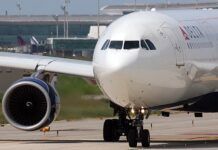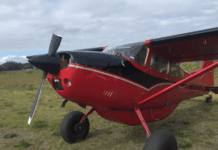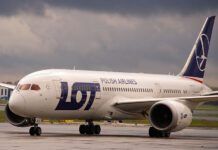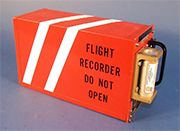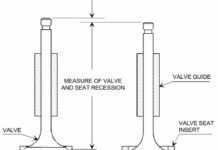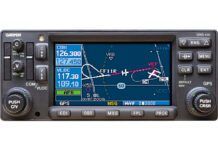Sport Pilot Should Cover C152
I lost my third-class medical 26 years ago because of undergoing open heart surgey. After eight years I got a waiver and passed. I lost eight years of PIC. I belonged to a flying club and over the past 40 years we have had about 200 different members.Many lost their medicals but we felt if there are two experienced pilots on board it would be safe to go. Now with the Sport Pilot rating we would like to fly again in a C150/152. Never to go solo, only to fly together VFR, so if either of us had a problem the other could take over.I will be 78 years young this June. Believe me, it is more dangerous on the road then in the air: Hot rods, noisy exhausts and disregard for traffic rules is done by the younger generation.The C150/152 would be very safe Sport aircraft. Even the Beech Sport should be in the Sport category — as its name suggests. All of us old timers still love GA and follow the rules. How about AVweb telling the FAA how we feel?John Kropa
Presidential TFRs
If Mr. Bin Laden wants to know the whereabouts of the President and/or Vice President, all he has to do is check the forecast for “Presidential TFRs.” This doesn’t make sense!Phil Conner
Missing Airline Pilots Weapons
I am in complete agreement with allowing airline pilots carry weapons. I am in total dissagreement with making them put them in baggage (NewsWire, Mar. 8). We know that some baggage handlers have sticky fingers and won’t stop at stealing from aircrew. Pilots should be allowed to maintain control of their weapons at all times! If they have passed whatever training course is required to have the weapon in the cockpit then they should be issued a concealed carry permit that will allow them to get the weapon home or to a company-provided secure storage vault.Lee Goettsche
AVweb Research Resource
So, tonight, I’m poking about the Web looking for articles on the subject of crash survivability. This is for a term paper I’m doing for a class in Aviation Safety at Eastern Michigan University. I Google on John Stapp, and one of the first pages that pops up is an article in AVweb. Now, I’ve subscribed to AVweb since it started, and I’m subscribed to AVweb heavy, too. But all I ever do is go to the Web site when I’m emailed the AVweb digest and look at the whole thing on the Web site. I’m totally clueless as to the fact that there is a whole ton of stuff on the Web site that bears looking at.Now I’m in trouble. This is because I already spend way too much time poking around the Web looking at stuff that is not part of my homework. Now I have another excuse to not get started that can be camouflaged as “doing my homework” but is actually fun. So, thanks AVweb, for a neat site. Now all I have to do is exercise some restraint.George Hunt, Jr.
De-Ice Debacle
I was enjoying reading the current edition of AVweb (which is a great publication, by the way) and was reading the interesting article by Lionel Lavenue titled De-Ice Debacle (ATIS, Mar. 8), when he made the following statement: “Every one said it was the most outrageous story of price gouging they had ever heard (in my opinion, even worse than Signature’s new $37.50 security fee).” I am very surprised Mr. Lavenue would make this kind of statement without doing some research.The Airport Authority at MDW has made a law that all FBOs must institute TSA screening. There is a $10,000 fine for those not complying. Signature has chosen to follow the law rather than break it and has hired TSA-trained screeners at the tune of $20,000 a month to remain in compliance. The $37.50 charged to each airplane using their facilities doesn’t even come close to offsetting this expense. Other operators, such as Atlantic Aviation and Million Air, have chosen to ignore the law and risk being fined as a result. Therefore, the charge Signature is asking of its customers is certainly not “outrageous price gouging” and does not warrant Mr. Lavenue making them out to be the bad guys or the worst FBO at MDW. He was likely just reacting to the stories he heard in the hanger; but if Mr. Lavenue knew the whole story, since he is an attorney, I would expect he would be on the side of those who willingly follow the law, even if it puts them at a competitive disadvantage.I would recommend having someone from your editorial staff contact the Airport Authority directly to find out from them what their law is, when it was instituted, who it applies to, what the fines are and whether they can attest who is and who isn’t in compliance and what they are doing about it. You should also have that same person contact a representative of Signature, Atlantic Aviation and Million Air to find out if they know about the law, whether or not they are complying with it, what it costs them, and whether or not they are recovering those costs from their visiting aircraft. If you discover that what I’ve said is true, I think Mr. Lavenue and AVweb would owe Signature an apology and a public statement applauding them for complying with the law. In addition, they should be applauded for not charging guest planes for the full cost of the mandated security screening and their efforts to absorb costs of doing business rather than being labelled “gougers.” This is only fair.Of course, if I am wrong about all this, I would like to know also. However, I am a pilot privy to the background scenes at MDW and I am fairly confident of the information I have given you.Thank you for considering this request and I look forward to the results of your investigation.Randall Karstetter
AVweb Replies Our ATIS section is meant to be neither news nor expose; it’s simply a venue for opinion and commentary. Our intent is not to beat up on FBOs or any other aviation businesses, for that matter. However, ATIS does provide a forum for observations from the field, and if that encompasses comments on customer service — good or bad — so be it. One point the column made that we think is worth repeating is that it’s simply not a good idea to have customers sign agreements to “pay whatever it takes” for any aviation product or service. We think it’s bad for the business and bad for the customer. If the customer agrees to pay any sum, what incentive is there to hold costs in line or to improve what may be an inefficient product or service? You wouldn’t sign a blank check for an annual or avionics work; why do it for de-icing? Open-ended payment agreements are bound to leave a customer with a bad feeling toward the business. We think there has to be a better way, frankly. Worth noting is that we received at least two notes from other Chicago-area airports inviting transients to visit them instead, with a promise to provide de-icing at competitive prices. And that’s the second important lesson from the ATIS column. There are aviation businesses out there that want to prove to you that they’re better than the guy across the field or at the next airport. And they’ll offer the right price on goods and services to earn your patronage. In fairness, we think Atlantic Aviation is actually one of these businesses and we’ve promised them space for a counterpoint column making just that pitch later this week. Paul Bertorelli Editorial Director | ||
XM Cockpit Weather Needs More
The XM Cockpit Weather system (NewsWire, Mar. 11) looks great for normal cross-country flight. But keep in mind that occasionally you need a local doppler radar, real-time display in the cockpit. Several times in my career I have been in rain so heavy that normal radar could not punch through, or have avoided an area for the same reason. EAL tried satalite pictures in the briefing room. By the time you got to altitude, everything had changed.Arnie Allison
Age Vs. Accident Rate
With regards to the aging vs. accident rate debate (Question of the Week, Mar. 4): How is it possible to make any valid statements about age vs. accident rate without knowing the number of flight hours involved? This has always seemed to me the weak point in every flight-safety article that attempts to quantify the accident rate in general aviation. To my knowledge, there is no database of known accuracy that tracks GA pilot flight time. Yes, when we go for our medical certificates, we’re asked for flight hours, but there is nothing that assures the accuracy of the numbers reported.Also, I would bet that there are an unquantifiable number of GA accidents, the equivalent of automobile “fender benders,” that never get reported, although I suspect that statistically this is less of a problem than the unverifiability of flight hours.Without knowing the actual number of hours flown, how can anyone, anywhere, make any valid statement about accident rates at all? Karin Cozzolino


















